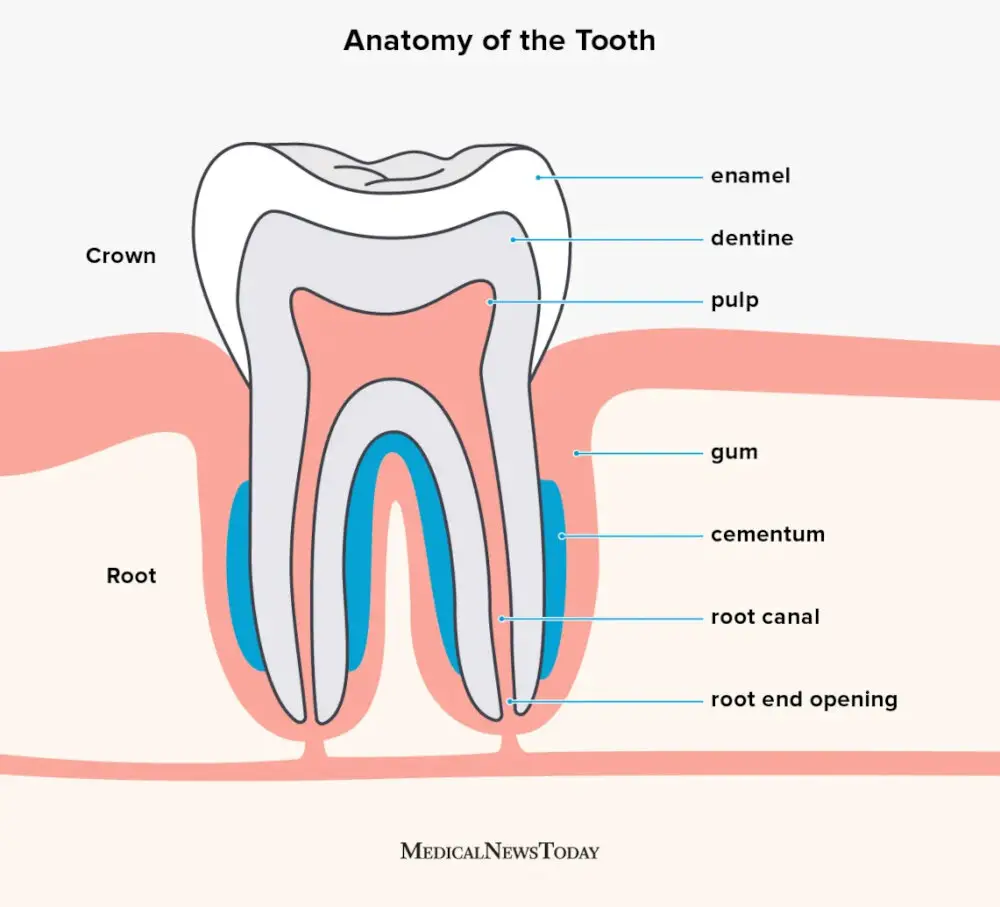Fluoride on Teeth: Optimal Time for Maximum Benefits

Fluoride is a mineral that is commonly found in various oral care products such as toothpaste, mouthwash, and water. It is well-known for its ability to prevent tooth decay and enhance overall oral health. However, the timing of fluoride application can significantly impact its effectiveness on teeth. Understanding the optimal time for maximum benefits of fluoride on teeth is crucial in maintaining good oral hygiene. In recent years, there has been a growing concern among people regarding the use of fluoride in oral care products. Some argue that excessive fluoride intake can have adverse effects on health, while others believe that it is necessary for healthy teeth. Regardless of the debate, it is important to note that fluoride is a naturally occurring mineral that has been proven to prevent tooth decay and improve oral hygiene. Therefore, it is essential to determine the best time to use fluoride to ensure maximum benefits and minimize its potential negative effects.
Fluoride is a naturally occurring mineral that has been found to have numerous benefits for teeth. It is commonly used in toothpaste, mouthwash, and even added to drinking water in some areas. Fluoride works by strengthening the enamel on teeth, making them more resistant to decay and cavities. It also helps to repair early stages of tooth decay, preventing the need for more invasive dental procedures. The optimal time for maximum benefits of fluoride is during childhood, when teeth are still developing and more susceptible to decay. However, adults can also benefit from fluoride use, especially those who are at a higher risk for cavities. Regular use of fluoride can lead to healthier teeth and a brighter smile.
The use of fluoride in dental care has been a topic of controversy for many years. While some studies have shown that fluoride can strengthen teeth and prevent decay, others have raised concerns about the potential side effects of exposure to high levels of fluoride. Some critics of fluoride argue that it can cause a range of health problems, including bone disease, thyroid dysfunction, and even cancer. In response to these concerns, some communities have opted to remove fluoride from their water supplies, while others continue to support its use in dental care. Despite the controversy, many dental professionals agree that fluoride can be a valuable tool in promoting good oral health, particularly when used properly and in moderation.
What is Fluoride?

Fluoride is a naturally occurring mineral that is found in various sources such as water, soil, and rocks. It is known to have several benefits for dental health, including strengthening teeth and preventing tooth decay. Fluoride helps to remineralize tooth enamel, making it more resistant to acid attacks from bacteria and food. This mineral also helps to reduce the amount of acid produced by bacteria in the mouth, which can lead to cavities and other dental problems. Fluoride can be obtained through various sources such as toothpaste, mouthwash, and drinking water. In many countries, fluoride is added to public water supplies to help improve dental health. However, excessive consumption of fluoride can lead to dental fluorosis, which causes white spots to appear on the teeth. Therefore, it is important to use fluoride products in moderation and under the guidance of a dental professional. Overall, fluoride plays a crucial role in maintaining dental health and can help to prevent tooth decay and other dental problems when used appropriately.
Fluoride is a naturally occurring mineral that can be found in many sources, including soil, water, and some foods. It is also commonly added to toothpaste, mouthwash, and other dental products to help prevent tooth decay. Fluoride works by strengthening the enamel on teeth, making it more resistant to acid attacks that can lead to cavities. It also helps to remineralize teeth that have already been damaged by acid. While fluoride is generally safe and effective, it is important to use it in moderation and follow the recommendations of dental professionals to ensure maximum benefits without any adverse effects.
Fluoride is a naturally occurring mineral found in many natural sources, including water, soil, and rocks. Many plants and animals also contain fluoride. In fact, most of the fluoride that we consume comes from our drinking water, which naturally contains varying amounts of the mineral. Some regions have higher levels of fluoride in their water supply than others, depending on the geology of the area. Additionally, certain types of food, such as tea and seafood, can also contain significant amounts of fluoride. Overall, natural sources of fluoride play an important role in maintaining healthy teeth and preventing tooth decay.
Fluoride is a naturally occurring mineral that helps prevent tooth decay by strengthening the tooth enamel, making it more resistant to acid attacks from bacteria in the mouth. When fluoride is ingested or applied topically to teeth, it reacts with the mineral crystals in enamel, creating a more resistant surface that is less susceptible to decay. Fluoride also helps to repair weakened enamel by remineralizing it, reversing the early stages of decay. Regular exposure to fluoride, either through fluoridated water, toothpaste, or professional treatments, can significantly reduce the risk of tooth decay and improve overall oral health. However, it is important to use fluoride in moderation, as excessive intake can lead to fluorosis, a condition that causes white spots or streaks on teeth.
Benefits of Fluoride on Teeth

Fluoride has been shown to be an essential element in maintaining oral health. The benefits of fluoride on teeth are numerous, and it is important to understand the optimal time for maximum benefits. Fluoride works by strengthening teeth and preventing decay. It does this by promoting remineralization, which is the process of restoring minerals lost from the tooth enamel due to acid attacks. This helps to make teeth more resistant to decay and can even reverse early stages of decay. Another benefit of fluoride is that it helps to reduce the amount of acid produced by bacteria in the mouth. This is important because acid is what causes tooth decay. By reducing acid production, fluoride helps to prevent decay before it even starts. Fluoride also helps to strengthen teeth by making them more resistant to acid attacks. This means that even if acid is produced in the mouth, the teeth are less likely to be affected by it. Overall, the benefits of fluoride on teeth are significant and should not be overlooked. By understanding the optimal time for maximum benefits, individuals can ensure that they are getting the most out of this essential element in their oral hygiene routine.
Fluoride is a mineral that is essential for maintaining healthy teeth and preventing dental problems. When fluoride is applied to the teeth, it helps to strengthen the tooth enamel, making it more resistant to decay and cavities. Fluoride also helps to repair early stages of tooth decay before it becomes a full-blown cavity. In addition to its protective benefits, fluoride can also reverse the damage caused by acid attacks on the teeth by restoring lost minerals. Regular use of fluoride can therefore help to maintain good oral health and prevent the need for costly dental treatments. However, it is important to use fluoride in the right amounts and at the optimal time to ensure maximum benefits for the teeth.
Fluoride is a natural mineral that is known to strengthen enamel and prevent cavities. When fluoride is applied to the teeth, it gets absorbed into the enamel and helps to make it stronger. This is because fluoride combines with the calcium and phosphate ions in the enamel to create a new compound called fluorapatite. This new compound is more resistant to acid attacks from harmful bacteria, which means that it is less likely to break down and form cavities. Additionally, fluoride can also help to repair early stages of tooth decay by remineralizing weakened enamel. Overall, fluoride is an essential tool for maintaining good oral health and preventing tooth decay.
Fluoride is a crucial mineral for dental health, and it plays an essential role in preventing tooth decay. When fluoride is present in the mouth, it can help to strengthen the tooth enamel, making it more resistant to acid attacks from bacteria that cause cavities. Fluoride also has the ability to reverse early tooth decay by remineralizing the affected area. When a tooth is exposed to acid, the enamel loses minerals, leading to the development of a cavity. However, fluoride can help to replace these minerals, effectively reversing the decay process and preventing the cavity from getting worse. It’s important to note that fluoride is most effective when it’s applied to the teeth at the optimal time, which is why it’s recommended to use fluoride toothpaste and receive professional fluoride treatments from a dentist.
Optimal Time for Fluoride Use

Fluoride is an essential mineral that helps protect teeth from decay and cavities. It works by strengthening the tooth enamel, making it more resistant to acid attacks caused by bacteria in the mouth. However, the optimal time for fluoride use is a topic of debate among dental professionals. Some argue that it is best to use fluoride toothpaste twice a day, while others recommend using it only at night. Research suggests that the best time to use fluoride toothpaste is before going to bed. This is because saliva production decreases during sleep, which can make the teeth more susceptible to acid attacks. By applying fluoride toothpaste before going to bed, the teeth are better protected throughout the night. Additionally, brushing before bed removes any food particles and plaque that may have accumulated throughout the day, further reducing the risk of decay and cavities. However, it is still important to brush twice a day to maintain good oral hygiene.
Fluoride is a mineral that helps in preventing tooth decay and strengthening tooth enamel. The optimal time to use fluoride for maximum benefits is during the developmental stage of teeth, i.e., childhood. It is recommended to start using fluoride toothpaste as soon as the first tooth appears, and the child should be monitored to ensure that they do not swallow the toothpaste. Additionally, fluoride treatments done by a dentist can also be beneficial for children’s teeth. Adults can also benefit from fluoride use, especially those who are at high risk of tooth decay due to factors such as dry mouth, gum disease, or frequent snacking. However, excessive use of fluoride can lead to dental fluorosis, a condition that causes white spots on the teeth. Therefore, it is crucial to follow the recommended dosage and seek professional advice on fluoride use.
The application of fluoride to teeth immediately after cleaning has a multitude of benefits for oral health. Firstly, it strengthens tooth enamel, making it more resistant to decay and erosion caused by acidic foods and drinks. Additionally, fluoride can help to remineralize areas of the teeth that have already begun to show signs of decay, reversing damage and preventing further deterioration. This is particularly important for individuals who are at higher risk of developing cavities, such as children and those with poor oral hygiene habits. Furthermore, fluoride can help to reduce sensitivity in teeth by blocking the tiny tubules in the teeth that transmit pain signals. Overall, the benefits of applying fluoride to teeth immediately after cleaning are numerous and can lead to improved oral health and a brighter, healthier smile.
Incorporating fluoride into a daily oral hygiene routine is essential for maintaining healthy teeth and preventing decay. One way to do this is by using fluoridated toothpaste, which can be found at most drugstores and grocery stores. It is recommended to brush your teeth twice a day, for two minutes each time, with a pea-sized amount of toothpaste. Another way to incorporate fluoride is by using a fluoride mouthwash once a day after brushing. It is important to not swallow the mouthwash and to follow the instructions on the label. Additionally, drinking tap water that has fluoride added to it can also help incorporate fluoride into your daily routine. By consistently using these methods, you can help ensure that your teeth receive the maximum benefits of fluoride.
Controversy Surrounding Fluoride Use

Fluoride usage has been the subject of controversy for years. While some people believe that fluoride is crucial in maintaining good oral health, others argue that it might have adverse effects on overall health. One of the arguments against fluoride usage is that it might lead to fluorosis, a condition that causes white spots to appear on the teeth. This condition is caused by overexposure to fluoride, and it affects children more than adults. Some experts claim that Fluoride, when consumed in large quantities, can also cause damage to the bones and kidneys. However, these claims have not been scientifically proven, and many studies have shown that fluoride is safe for human consumption. In the United States, the debate over fluoride usage has been ongoing since the 1940s. Some people believe that fluoride should be added to drinking water to prevent tooth decay, while others argue that this practice is unnecessary and potentially harmful. Despite the controversy, many countries around the world continue to fluoridate their water supplies. In the end, the decision to use fluoride should be made based on scientific evidence and individual circumstances. It is essential to consult a dentist or healthcare professional to determine the optimal level of fluoride intake for you and your family.
The use of fluoride in dental care has been a subject of controversy for decades. While some studies have shown that the mineral can strengthen tooth enamel and prevent decay, others have linked it to potential health risks such as skeletal fluorosis and thyroid dysfunction. Despite the controversy, many dental professionals still recommend the use of fluoride in toothpaste and water fluoridation as a safe and effective way to promote oral health. However, it is important for individuals to educate themselves on the potential risks and benefits of fluoride and make informed decisions about its use in their own oral care routines.
Fluoride is a mineral that is commonly used for preventing tooth decay and strengthening enamel. The arguments for fluoride use highlight its effectiveness in reducing the prevalence of dental caries and improving overall oral health. Proponents of fluoride suggest that it is safe, affordable, and easy to access, making it an ideal solution for improving oral health in communities. However, opponents of fluoride use argue that excessive exposure to fluoride can lead to adverse health effects, including dental fluorosis and thyroid dysfunction. They also argue that the benefits of fluoride use may be overstated, and that alternative approaches to oral health, such as improved nutrition and hygiene, may be more effective in preventing tooth decay. Despite these arguments, fluoride remains a widely used and effective tool for improving oral health.
The research supporting the use of fluoride in dental care is extensive and well-established. Fluoride has been shown to strengthen tooth enamel, making it more resistant to decay and erosion. Numerous studies have demonstrated the effectiveness of fluoride in reducing the incidence of dental caries in both children and adults. In addition, fluoride has been found to remineralize early stages of tooth decay, reversing the damage and preventing further decay. The American Dental Association, the World Health Organization, and other reputable organizations all recommend the use of fluoride in dental care. While some concerns have been raised about potential side effects of fluoride, these have been largely debunked by scientific research, and the benefits of fluoride use in preventing tooth decay far outweigh any potential risks.
Fluoride is a natural mineral that is found in many foods and water sources. It has been proven to be beneficial for teeth and oral health in numerous ways. One of the primary benefits of fluoride is that it helps to prevent tooth decay by strengthening tooth enamel. It also helps to reverse early stages of decay by encouraging the remineralization of weakened enamel. Fluoride can also help to reduce the amount of acid produced by bacteria in the mouth, which can further protect teeth from decay. Additionally, fluoride can help to improve overall oral health by reducing the risk of gum disease and promoting healthy tooth development. Overall, regular exposure to fluoride can have a significant positive impact on dental health and should be incorporated into daily oral hygiene routines.
Fluoride is a naturally occurring mineral that has been shown to be highly effective in strengthening tooth enamel and preventing cavities. However, many people are not aware of the optimal time to use fluoride in order to maximize its benefits. Research has shown that fluoride is most effective when it is applied directly to the teeth, either through toothpaste, mouthwash, or professional treatments. It is also important to use fluoride at the right time, such as immediately after brushing or before bed, when the teeth are more susceptible to the effects of fluoride. By emphasizing the importance of using fluoride at the optimal time, we can help people to better protect their teeth and maintain good oral health for years to come.
In conclusion, the debate on fluoride use and its benefits for oral health may be a contentious issue, but it is crucial to make informed decisions about dental care. While some individuals may have concerns about the safety and efficacy of fluoride, it is important to understand that numerous studies have demonstrated its effectiveness in preventing tooth decay. Ultimately, individuals should consult with their dentists and medical professionals to determine the best course of action for their oral health needs. Maintaining good oral hygiene habits, including regular dental checkups, can also help prevent dental problems and ensure optimal oral health. With careful consideration and informed decision-making, individuals can enjoy the benefits of fluoride and maintain a healthy smile for years to come.
Conclusion

In conclusion, the optimum time for maximum benefits of fluoride on teeth is dependent on various factors, including age, oral hygiene, and the level of exposure to fluoride. The benefits of fluoride on teeth include cavity prevention, strengthening of enamel, and reduction of tooth sensitivity. However, excessive consumption of fluoride can lead to fluorosis, which can cause discoloration and weakening of teeth. Therefore, it is essential to maintain a balance between fluoride intake and oral hygiene practices. Regular dental check-ups and consultations with a dentist can help determine the optimal time and level of fluoride exposure for maximum benefits and maintain optimum oral health.







